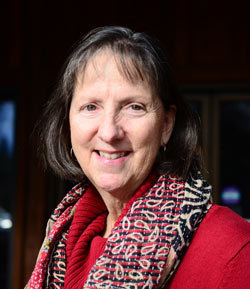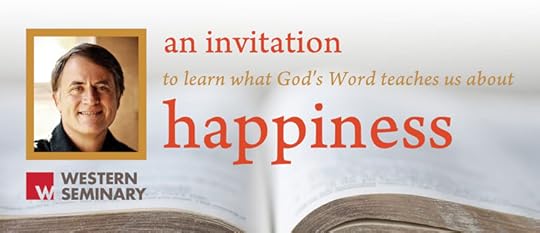Randy Alcorn's Blog, page 166
April 22, 2015
What���s the Difference between the Present Heaven and the Future Heaven?

People usually think of “Heaven” as the place Christians go when they die. A better definition explains that Heaven is God’s central dwelling place, the location of his throne from which he rules the universe.
Many don’t realize that the present pre-resurrection Heaven and future post-resurrection Heaven are located in different places. The exact location of the present Heaven is unknown, but we’re told the future Heaven will be located on the New Earth. The present Heaven is a place of transition between believers’ past lives on Earth and future resurrection lives on the New Earth.
Life in the present Heaven (which theologians call the “intermediate” Heaven) is “better by far” than living here on Earth under the curse (Phil. 1:23). But it’s not our final destination.
Will We Live in Heaven Forever?
The answer depends on our definition of Heaven. Will we be with the Lord forever? Absolutely. Will we always be with God in the same place Heaven is now? No. In the present Heaven, God’s people are in Christ’s presence, free of sin and suffering and enjoying great happiness: “in your presence there is fullness of joy” (Ps. 16:11). But they’re still looking forward to their bodily resurrection and permanent relocation to the New Earth. So, yes, after death we’ll always be in Heaven, but not in the same place or the same condition.
To illustrate, imagine you lived in a homeless shelter in Miami. One day you inherit a beautiful house overlooking Santa Barbara, California, and are given a wonderful job doing something you’ve always wanted to do. Many friends and family will live nearby.
As you fly toward Santa Barbara, you stop at the Dallas airport for a layover. Other family members you haven’t seen in years meet you. They will board the plane with you to Santa Barbara. Naturally you look forward to seeing them in Dallas, your first stop.
But if someone asks where you’re going, would you say “Dallas”? No. You would say Santa Barbara, because that’s your final destination. Dallas is just a temporary stop. At most you might say “I’m going to Santa Barbara, with a brief stop in Dallas.”
Similarly, the present Heaven is a temporary dwelling place, a stop along the way to our final destination: the New Earth. (Granted, the Dallas analogy isn’t perfect—being with Jesus and reunited with loved ones will be immeasurably better than a layover in Dallas!)
In the Present Heaven Do People Have Physical Forms?
Unlike angels, who are in essence spirits (John 4:24; Heb. 1:14), human beings are by nature both spiritual and physical. We don’t occupy our bodies as a hermit crab occupies a shell. We can’t be fully human without both a spirit and a body.
Given the consistent physical descriptions of the intermediate heaven and its inhabitants, it seems possible—though debatable—that between our earthly lives and bodily resurrection, God may grant us temporary physical forms. If so, that would account for the repeated depictions of people now in Heaven occupying physical space, wearing clothes and crowns, talking, holding palm branches in their hands, and having body parts (e.g. Luke 16:24, Rev. 7:9).
Certainly we do not receive resurrection bodies immediately after death. If we have intermediate forms in the intermediate heaven (and we may not), they will be temps, not our true bodies, which remain dead until the final resurrection.
Will We Recognize Each Other in the Present Heaven?
When asked if we would recognize friends in Heaven, George MacDonald responded, “Shall we be greater fools in Paradise than we are here?”
Scripture gives no indication of a memory wipe causing us to forget family and friends. On the contrary, if we wouldn’t know our loved ones in Heaven, the “comfort” of an afterlife reunion, taught in 1 Thessalonians 4:14-18, would be no comfort at all.
In Christ’s transfiguration, his disciples recognized Moses and Elijah, even though they couldn’t have known what they looked like (Luke 9:29-33). This suggests that personality will emanate through whatever forms we take. If we can recognize those we’ve never seen, how much more will we recognize our family and friends?
After we die, we will give a detailed account of our lives on Earth (2 Cor. 5:10; Matt. 12:36). This will require better memories, not worse. Those memories will surely include our families and friends!
Are You Looking Forward to Your Forever Home?
Though life in the intermediate Heaven will be wonderful, it’s not the place we’re made for, our true eternal home. The Bible promises that we’ll live with Christ and each other forever on the New Earth, where God—Father, Son (eternally incarnate), and Holy Spirit—will be at home with his people:
Then I saw a new heaven and a new earth. . . . I saw the Holy City, the new Jerusalem, coming down out of heaven from God. . . . And I heard a loud voice from the throne saying, “Now the dwelling of God is with men, and he will live with them. They will be his people, and God himself will be with them and be their God.” (Rev. 21:1-3)
This passage clearly indicates that ultimately God’s central dwelling place—Heaven—is on Earth. Some, including N. T. Wright, argue that the New Earth shouldn’t be called Heaven. But if Heaven, by definition, is God’s special dwelling place, and “the dwelling of God” will be with humankind on Earth, then Heaven and the New Earth will essentially be the same place. Heaven is also where we see God’s throne, and we’re told that “the throne of God and of the Lamb” will be in the New Jerusalem, on the New Earth (Rev. 22:1).
Instead of us going up to God’s place to live forever, God will come down to live with us in our place, literally bringing Heaven to Earth! God’s children are destined for life as resurrected beings on a resurrected Earth. We should daily keep in mind our true destination, our ultimate home. Let’s be like Peter and the early Christians: “according to his promise we are waiting for new heavens and a new earth in which righteousness dwells” (2 Pet. 3:13).
photo credit: Hardangerfjord via photopin (license)
What’s the Difference between the Present Heaven and the Future Heaven?

People usually think of “Heaven” as the place Christians go when they die. A better definition explains that Heaven is God’s central dwelling place, the location of his throne from which he rules the universe.
Many don’t realize that the present pre-resurrection Heaven and future post-resurrection Heaven are located in different places. The exact location of the present Heaven is unknown, but we’re told the future Heaven will be located on the New Earth. The present Heaven is a place of transition between believers’ past lives on Earth and future resurrection lives on the New Earth.
Life in the present Heaven (which theologians call the “intermediate” Heaven) is “better by far” than living here on Earth under the curse (Phil. 1:23). But it’s not our final destination.
Will We Live in Heaven Forever?
The answer depends on our definition of Heaven. Will we be with the Lord forever? Absolutely. Will we always be with God in the same place Heaven is now? No. In the present Heaven, God’s people are in Christ’s presence, free of sin and suffering and enjoying great happiness: “in your presence there is fullness of joy” (Ps. 16:11). But they’re still looking forward to their bodily resurrection and permanent relocation to the New Earth. So, yes, after death we’ll always be in Heaven, but not in the same place or the same condition.
To illustrate, imagine you lived in a homeless shelter in Miami. One day you inherit a beautiful house overlooking Santa Barbara, California, and are given a wonderful job doing something you’ve always wanted to do. Many friends and family will live nearby.
As you fly toward Santa Barbara, you stop at the Dallas airport for a layover. Other family members you haven’t seen in years meet you. They will board the plane with you to Santa Barbara. Naturally you look forward to seeing them in Dallas, your first stop.
But if someone asks where you’re going, would you say “Dallas”? No. You would say Santa Barbara, because that’s your final destination. Dallas is just a temporary stop. At most you might say “I’m going to Santa Barbara, with a brief stop in Dallas.”
Similarly, the present Heaven is a temporary dwelling place, a stop along the way to our final destination: the New Earth. (Granted, the Dallas analogy isn’t perfect—being with Jesus and reunited with loved ones will be immeasurably better than a layover in Dallas!)
In the Present Heaven Do People Have Physical Forms?
Unlike angels, who are in essence spirits (John 4:24; Heb. 1:14), human beings are by nature both spiritual and physical. We don’t occupy our bodies as a hermit crab occupies a shell. We can’t be fully human without both a spirit and a body.
Given the consistent physical descriptions of the intermediate heaven and its inhabitants, it seems possible—though debatable—that between our earthly lives and bodily resurrection, God may grant us temporary physical forms. If so, that would account for the repeated depictions of people now in Heaven occupying physical space, wearing clothes and crowns, talking, holding palm branches in their hands, and having body parts (e.g. Luke 16:24, Rev. 7:9).
Certainly we do not receive resurrection bodies immediately after death. If we have intermediate forms in the intermediate heaven (and we may not), they will be temps, not our true bodies, which remain dead until the final resurrection.
Will We Recognize Each Other in the Present Heaven?
When asked if we would recognize friends in Heaven, George MacDonald responded, “Shall we be greater fools in Paradise than we are here?”
Scripture gives no indication of a memory wipe causing us to forget family and friends. On the contrary, if we wouldn’t know our loved ones in Heaven, the “comfort” of an afterlife reunion, taught in 1 Thessalonians 4:14-18, would be no comfort at all.
In Christ’s transfiguration, his disciples recognized Moses and Elijah, even though they couldn’t have known what they looked like (Luke 9:29-33). This suggests that personality will emanate through whatever forms we take. If we can recognize those we’ve never seen, how much more will we recognize our family and friends?
After we die, we will give a detailed account of our lives on Earth (2 Cor. 5:10; Matt. 12:36). This will require better memories, not worse. Those memories will surely include our families and friends!
Are You Looking Forward to Your Forever Home?
Though life in the intermediate Heaven will be wonderful, it’s not the place we’re made for, our true eternal home. The Bible promises that we’ll live with Christ and each other forever on the New Earth, where God—Father, Son (eternally incarnate), and Holy Spirit—will be at home with his people:
Then I saw a new heaven and a new earth. . . . I saw the Holy City, the new Jerusalem, coming down out of heaven from God. . . . And I heard a loud voice from the throne saying, “Now the dwelling of God is with men, and he will live with them. They will be his people, and God himself will be with them and be their God.” (Rev. 21:1-3)
This passage clearly indicates that ultimately God’s central dwelling place—Heaven—is on Earth. Some, including N. T. Wright, argue that the New Earth shouldn’t be called Heaven. But if Heaven, by definition, is God’s special dwelling place, and “the dwelling of God” will be with humankind on Earth, then Heaven and the New Earth will essentially be the same place. Heaven is also where we see God’s throne, and we’re told that “the throne of God and of the Lamb” will be in the New Jerusalem, on the New Earth (Rev. 22:1).
Instead of us going up to God’s place to live forever, God will come down to live with us in our place, literally bringing Heaven to Earth! God’s children are destined for life as resurrected beings on a resurrected Earth. We should daily keep in mind our true destination, our ultimate home. Let’s be like Peter and the early Christians: “according to his promise we are waiting for new heavens and a new earth in which righteousness dwells” (2 Pet. 3:13).
photo credit: Hardangerfjord via photopin (license)
April 20, 2015
If We Expect We Won’t Be Persecuted for Our Faith, We Need to Readjust Our Expectations

Jesus said, “If the world hates you, keep in mind that it hated me first” (John 15:18). Peter said, “Do not be surprised at the fiery ordeal that has come on you to test you, as though something strange were happening to you” (1 Peter 4:12).
In spite of these promises, many Christians seem shocked and outraged when they have to face these very trials. Social media is filled with complaints about political issues and how the world fails to recognize Christians’ rights.
As Americans we’ve been slow to accept the extent to which Bible-believing Christ-followers have become socially unacceptable. Though we should work to hold onto our religious liberties, it’s likely they’ll continue to erode. But cheer up! Opposition is nothing new for God’s people, and historically the church’s greatest advances have come at the lowest ebb of its popularity.
In our increasingly post-Christian society, how can we expect a secular government to value and accommodate Christianity? In today’s America, inclusivity is the greatest good. Morality is not. Acceptance is the greatest good. Truth is not. And even the most inclusive and loving Christians must insist that some things are right and others are wrong. [1] In doing so, we ensure a degree of unpopularity.
Many Christians have become perpetually unhappy, complaining whiners, coming across as victims rather than “more than conquerors through him who loved us” (Romans 8:37). The gospel we proclaim becomes unattractive when instead of saying “look at the Jesus we follow,” people hear, “look at how we’re being mistreated.”
I see too many long-faced Christians who seem continuously angry, disillusioned and defensive by what’s going on politically. We dare not base our happiness on having all our Christian liberties restored and maintained. While it’s good for Christians to serve in political positions, our effectiveness in living out the gospel doesn’t hinge on having such power. For God’s people, it never has. The Christian faith may never return to its central public role in our culture, but Christ’s gospel is bigger than every obstacle. Sometimes a less popular church becomes a more faithful, dynamic and joyful church.
Desiring God’s Marshall Segal introduces a video clip from a John Piper sermon that addresses this issue:
In this seven-minute clip, Pastor John speaks directly to the hearts of Christians who feel increasingly unwelcome and alien in the America we know today. Stop expecting everything to go well. Stop trying to fit in here. Instead, fuel your life with the invincible and eternal hope of knowing Jesus Christ forever.
[1] I owe the language in this paragraph mostly to Julia Stager.
April 17, 2015
A Young Woman’s Spoken Word, Thanking Her Mother for Her Courageous Choice

I recently received an email from a precious young woman named Mayra. She writes, “I was adopted from Mexico, and when I received Christ, He helped me understand my root of rebellion. I felt rejected all my life. But He provided a healing that was unexplainable. ...I was given your book Why ProLife?. This brought a new perspective towards my birth mother and so I wrote her a thank you letter in the form of ‘Spoken Word Poetry.’”
Mayra shared that one of her favorite verses is Ephesians 1:5: “He predestined us for adoption to sonship through Jesus Christ, in accordance with his pleasure and will.”
I encourage you to take five minutes to watch Mayra share her poem:
Her video and story is a reminder that adoption is a courageous choice for a woman facing an unplanned pregnancy—one which will give life to a child and incredible joy to a family.
The pregnant teenager we took into our home previously had two abortions, but while with us gave birth and released her baby for adoption. It wasn’t easy, but this wonderful woman, years later, told me: “I look back at the three babies I no longer have, but with very different feelings. The two I aborted fill me with grief and regret. But when I think of the one I gave up for adoption, I’m filled with joy, because I know he’s being raised by a family that wanted him.”
The Christian community should make a concerted effort to overcome the negative spin on adoption. We should speak of it positively and show high regard for women who release their children for adoption. We should publicly honor adoptive parents and bless adopted children. We should make prominent the excellent resources on adoption and celebrate it in our churches.
Then women will be encouraged to realize adoption is a choice for which both they and their child will later be profoundly thankful.
Check out Hope for Orphans and Christian Alliance for Orphans for information on adoption as well as foster care.
April 15, 2015
C . S. Lewis, The Romantic Rationalist, and Longing for the New Earth

I had the privilege of attending and speaking at Desiring God’s 2013 National Conference. It was profoundly Christ-centered, both in the worship and teaching. One of the great things that came of that conference was the book The Romantic Rationalist: God, Life, and Imagination in the Work of C. S. Lewis. I contributed a chapter on Lewis’s view of Heaven and an appendix on his view of Hell, both dealing with a lot of Scripture.
John Piper explains more about the book:
The Romantic Rationalist from Desiring God
Here’s an excerpt from my chapter, “C. S. Lewis on Heaven and the New Earth: God’s Eternal Remedy to the Problem of Evil and Suffering.” (You can also watch the entire message this chapter was taken from.)
There is much to look forward to about being with Christ in the present Heaven. As Paul put it, “To be absent from the body is to be present with the Lord” (1 Corinthians 5:4).
Lewis wrote to a believing American woman who thought she was dying:
“Can you not see death as a friend and deliverer? . . . What is there to be afraid of? . . .Your sins are confessed. . . . Has this world been so kind to you that you should leave with regret? There are better things ahead than any we leave behind. . . . Our Lord says to you, ‘Peace, child, peace. Relax. Let go. I will catch you.’” [i]
Lewis added, “Of course, this may not be the end. Then make it a good rehearsal.” He signed the letter, “Yours (and like you, a tired traveler, near the journey’s end).” Five months later, he died.
Colossians 3 commands us to think about the present Heaven, where Christ is seated at God’s right hand. But Scripture is also clear that the Heaven that should most dominate our thinking is the eternal kingdom of God, the climactic culmination of God’s unfolding drama of redemption.
“But in keeping with his promise we are looking forward to a new heaven and a new earth, where righteousness dwells” (2 Peter 3:13, NIV). But how can we look forward to it if we don’t think about it? And how can we think about it unless we are taught about it from God’s Word? Suppose a trip awaits you and you will be flying from Miami to Santa Barbara, with a layover in Dallas, Dallas is not your final destination. You say, “I’m headed to Santa Barbara.” Or at most you say, “I’m headed to Santa Barbara by way of Dallas.” According to Scripture, the New Earth is our final destination. The present Heaven will be a stop along the way toward resurrection. (It’ll be a wonderful layover. In Philippians 1:21 Paul calls it “better by far” than our present existence; infinitely better than the Dallas airport!)
Revelation 21 beautifully portrays what awaits God’s children:
Then I saw a new heaven and a new earth, for the first heaven and the first earth had passed away…I saw the holy city, new Jerusalem, coming down out of heaven from God…And I heard a loud voice from the throne saying, “Behold, the dwelling place of God is with man. He will dwell with them, and they will be his people, and God himself will be with them as their God. He will wipe away every tear from their eyes, and death shall be no more, neither shall there be mourning, nor crying, nor pain anymore, for the former things have passed away.”
Multiple times in this passage God says he will come down from the present heaven to live with his people on the New Earth. The city “comes down out of heaven,” God’s dwelling place is “with man,” God will “dwell with them,” and God himself “will be with them.” Despite the repetition, most Christians still don’t appear to believe that God’s plan is to bring Heaven to Earth and dwell here with us forever. Not just for a thousand years in a millennial kingdom on the old earth, but forever on the New Earth. Christ is Emmanuel, “God with us”, forever. The incarnation of Jesus was not temporary.
We normally think of us going up to Heaven to live with God in his place. That is indeed what happens when we die. But the ultimate promise is that God will come down to live with us in our place, on the New Earth. The ultimate Heaven will not be “us with God” but “God with us” (Revelation 21:3).
 I love Lewis’s valiant mouse, Reepicheep, who single-mindedly sought Aslan’s country: “While I can, I sail east in the Dawn Treader. When she fails me, I paddle east in my coracle. When she sinks, I shall swim east with my four paws. And when I can swim no longer, if I have not reached Aslan’s country, or shot over the edge of the world in some vast cataract, I shall sink with my nose to the sunrise.” [ii]
I love Lewis’s valiant mouse, Reepicheep, who single-mindedly sought Aslan’s country: “While I can, I sail east in the Dawn Treader. When she fails me, I paddle east in my coracle. When she sinks, I shall swim east with my four paws. And when I can swim no longer, if I have not reached Aslan’s country, or shot over the edge of the world in some vast cataract, I shall sink with my nose to the sunrise.” [ii]
Reepicheep doesn’t long for Aslan’s “Ghostly Realm of Cloudy Nothingness”. He longs to be with his King forever in that solid country with land, mountains, rivers, metals, plains, trees, animals and people with physical bodies. The ground quakes under Aslan as he prowls. Aslan is real and tangible, and his flowing mane can be touched if you dare. Reepicheep loves Aslan not as a disembodied spirit but as a tangible mighty Lion, King of Kings, ruler of Narnia, Earth and all worlds. Reepicheep longs to be in Aslan’s country, for he longs for Aslan himself.
We want Jesus, so naturally we should want to live where he lives! Hebrews 11:16 says, “they were longing for a better country—a heavenly one.” The patriarchs longed for a better country because they longed for God. The reason Heaven matters is because God lives there.
In Mere Christianity Lewis lamented that we haven’t been trained to want Heaven:
Our whole education tends to fix our minds on this world. …when the real want for Heaven is present in us, we do not recognize it. Most people, if they had really learned to look into their own hearts, would know that they do want, and want acutely, something that cannot be had in this world. There are all sorts of things in this world that offer to give it to you, but they never quite keep their promise…If we find ourselves with a desire that nothing in this world can satisfy, the most probable explanation is that we were made for another world. [iii]
[i] C. S. Lewis, Letters to an American Lady (Grand Rapids, MI: Eerdmans, 1967), 117.
[ii] C. S. Lewis, The Voyage of the Dawn Treader (New York: Scholastic, 1952), 24.
[iii] C. S. Lewis, Mere Christianity (New York: Macmillan, 1960), 119.
April 13, 2015
Does Open Theism solve the problem of evil and suffering?

Most proposed solutions to the problem of evil and suffering have been around for a long time, but Open Theism is more recent.
Open theists believe that God does not and cannot know in advance the future choices that His free creatures will make. A leading proponent of open theism, Gregory Boyd, writes, “The open view, I submit, allows us to say consistently, in unequivocal terms, that the ultimate source of all evil is found in the will of free agents rather than in God.” Since Boyd includes suffering in the category of “all evil,” he believes God never sends us suffering.
A loving God took a calculated risk, open theists suggest, but had He known the horrible things that would occur—the rapes and killings and tortures and abuse—He might never have created this world as He did. Hence, proponents of Open Theism argue, God cannot be held responsible for His creatures’ evil, since He could not foresee it.
Years ago when I first read an open theist’s article, it surprised me, but it didn’t deeply concern me, because I thought this view would never gain traction among evangelical Christians. I was wrong. Both in research and in conversations with suffering people, I’ve discovered that open theism has become surprisingly influential among sincere believers.
I don’t enjoy opposing a doctrine that seems to comfort some suffering brothers and sisters. However, I believe open theism redefines God Himself, altering one of His most basic attributes, omniscience, in a misguided and unsuccessful attempt to make it more compatible with His love.
In this video, I address the questions of, “Is God sovereign over suffering? And does Open Theism solve the problem of evil and suffering?”
photo credit: an open book via photopin (license)
April 10, 2015
What Is the Sabbath?

When God created the world, he rested on the seventh day (Genesis 2:2). That’s the basis for the biblical Sabbath, when all people and animals rested (Exodus 20:9-11). God set aside days and weeks of rest, and he even rested the earth itself every seventh year (Leviticus 25:4-5).
“Make every effort to enter that rest” (Hebrews 4:11). It’s ironic that it takes such effort to set aside time for rest, but it does. For me, and for many of us, it’s difficult to guard our schedules, but it’s worth it. The day of rest points us to Heaven and to Jesus, who said, “Come to me, all you who are weary . . . , and I will give you rest” (Matthew 11:28).
What is the Sabbath and what does it mean for Christians today? EPM’s Julia Stager, with her usual depth and clarity, talks about this in an excellent 5-minute video. After listening to Julia, you might be interested in the resources I’ve linked to below the video:
If you’re interested in why the church started worshipping on Sundays when the Sabbath is actually from Friday sunset to Saturday sunset, see this article.
John Piper argues that believers should set aside one day a week for rest, though what that day is will vary for different people.
Finally, Mark Buchanan has written a compelling book I recommend, called The Rest of God: Restoring Your Soul by Restoring Sabbath.
photo credit: Make Me Dance via photopin (license)
April 8, 2015
Why You Can Find Hope in Stress

Note from Randy Alcorn: Today’s guest blog is from our newest EPM staff member Karen Coleman. Karen is a dear sister who brings with a deep love for the Lord and a heart for ministry. She and her family served 23 years as missionaries in Africa.
Karen and I also worked together years ago at Good Shepherd Community Church when I was a pastor. Nanci and I have always loved and appreciated Karen, and we respect deeply how she has, in recent years, faced great difficulties with God’s grace in view. It’s a privilege to have her on staff with us at EPM.

I was thinking (stressing?) about my stress level yesterday, and decided to go online and take the Holmes and Rahe Stress Inventory. My total was calculated and it was actually off the charts in the highest category, which then warns rather ominously: “You have a high or very high risk of becoming ill in the near future.” As a cancer survivor, this is not the kind of news I take pleasure in hearing!
In the past two plus years, I’ve been through a series of transitions, some very big and painful—including two major moves (across states and continents) and nine minor moves (living with friends or house-sitting for the past year), a year-long battle with cancer and its brutal treatment methods (with 3 major surgeries, thousands of dollars of bills, and Christmas day in the ICU), major job transitions, loss of involvement in a ministry I had valued and enjoyed for over two decades, an empty nest (with my sons not only leaving home but also leaving the continent), and far-reaching relationship difficulties that have struck a blow to the foundation of who I am. Reflecting on all I’ve experienced, I think I have good reason to be stressed, overwhelmed, even devastated. But in fact, most of the time, I don’t actually have the typical feelings associated with such a high number of stress-producing life events. I wanted to figure out why.
Last fall, when my life circumstances truly seemed to be falling apart, I read Randy and Nanci’s insightful book Help for Women Under Stress. I bookmarked this passage:
Hope is the light at the end of life’s tunnel. It not only makes the tunnel endurable, it fills the heart with anticipation of the world into which we will one day emerge. Not just a better world, but a new and perfect world. A world alive, fresh, beautiful, devoid of pain and suffering and war; a world without disease, without accident, without tragedy; a world without dictators and madmen. A world ruled by the only One worthy of ruling.
This hope isn’t mere wishful thinking or an unrealistic dream or fantasy. Rather, it is a hope secured by the blood-bought promise of our Savior and King. After making the pledge that He will end all suffering and death and wipe away every tear, “He [Christ] who was seated on the throne said, ‘I am making everything new!’ Then He said, ‘Write this down, for these words are trustworthy and true’” (Revelation 21:5). Jesus was saying, “That’s my promise, bought by my blood, permanently inscribed in the scars on my hands and feet.” This is a promise we can take to the bank. In a world where little seems certain, this is certain!
How do we gain this godly perspective that allows us to see beyond our stress? One way is by seeing how God uses our circumstances for His glory and our good. Once we understand that stress is a powerful tool in His loving hand, we will never look at it the same way again.
That is a game-changing perspective! Think about that for a moment—“stress is a powerful tool in His loving hand.” Granted, there are times when stress feels like a sledge hammer, pummeling and flattening me right down to the ground, or like a chisel, whittling away what I thought were important parts of me. But He is still—and always!—loving, and using it all for His glory and my good.
I’ve had my share of “wishful thinking” and some romantic notions about how I always imagined my life would be. And it’s not necessarily wrong to plan for and dream about the future. The problems—and the stress—come when we pin our hopes on our own plans regarding the world and people around us. “Many are the plans in a man’s heart, but it is the Lord’s purpose that prevails” (Proverbs 19:21). As Randy and Nanci explain, “The fulfilled life largely consists of unclenching our fists, releasing our plans and giving ourselves over to His purpose.”
There is a great passage in 2 Corinthians 4 and 5 that reminds us how to “see beyond our stress.” I like these verses in the Message version:
So we’re not giving up. How could we! Even though on the outside it often looks like things are falling apart on us, on the inside, where God is making new life, not a day goes by without his unfolding grace. These hard times are small potatoes compared to the coming good times, the lavish celebration prepared for us. There’s far more here than meets the eye. The things we see now are here today, gone tomorrow. But the things we can’t see now will last forever… The Spirit of God whets our appetite by giving us a taste of what’s ahead. He puts a little of heaven in our hearts so that we’ll never settle for less.
That’s why we live with such good cheer. You won’t see us drooping our heads or dragging our feet! Cramped conditions here don’t get us down. They only remind us of the spacious living conditions ahead. It’s what we trust in but don’t yet see that keeps us going. Do you suppose a few ruts in the road or rocks in the path are going to stop us? …Cheerfully pleasing God is the main thing, and that’s what we aim to do, regardless of our conditions.
So when the inevitable ruts in your road or rocks in your path start causing you stress, stop and take heart in the lavish celebration to come, and refocus your attention on cheerfully pleasing the God who daily bears our burdens (Psalm 68:19).
That is the main thing, and a great recipe for stress relief.
Randy and Nanci’s book Help for Women Under Stress is being offered at the lowest EPM price ever—only $4.99 (retail $14.99). Sale ends Thursday, April 16.
photo credit: Sunny tree via photopin (license)
April 6, 2015
An Invitation to Study What Scripture Says about God’s Happiness and Ours

I’d like to share more about an upcoming Theology of Happiness course I’ll be teaching June 3-5 at the Portland, Oregon campus of Western Seminary. The course is available for graduate credit, but anyone is welcome (and encouraged) to audit it. It begins Wednesday, June 3 at 1 p.m., goes all day Thursday and ends Friday, June 5 at 5 p.m.
Here’s what I wrote regarding the theme of the course:
Unfortunately, many believers today are taught that God wants us to be holy, but not happy, and that joy and happiness are fundamentally different. We’ve even been left with the impression that God Himself isn’t happy. So during the course (which is a prelude to my book Happiness that will be out this October), we’ll explore the questions: Is God happy? Should His children be?
Joy, gladness, delight, celebration and happiness in Christ are based on solid redemptive facts, including God’s love and sovereignty. Through the “good news of great joy,” God makes possible a settled happiness despite life’s difficulties—not a superficial “don’t worry, be happy” worldview that ignores human suffering or promotes prosperity theology. We don’t yet live on the New Earth, but we will. The “already and not yet” truths of life in Christ have breathtaking implications for our present happiness even under the Fall and Curse.
We’ll study our God-given quest for happiness and the triune God’s own happiness that makes Him the source of ours (with special attention to the happiness of Jesus). We’ll examine the rich constellation of Hebrew and Greek happiness synonyms in Scripture, and the God-centered partying of Israel’s feasts; how the most popular Bible translations have obscured many happiness passages; how the now pervasive evangelical contrast between joy and happiness is unbiblical and misleading, and flies in the face of church history’s positive use of happiness.
We’ll look at the inseparable nature of holiness and happiness, and examine happiness in adversity. Finally, we’ll discuss how to cultivate a deeper happiness in Christ that enriches us, encourages our family and friends, and draws unbelievers to Jesus.
For more information and to register, contact Western Seminary at www.westernseminary.edu, 1.877.517.1800. (Those interested in auditing the course can go here for more details.) The registration deadline is May 27.
I look forward to this class, and I really hope to see some of you there! Please let me know if you plan to join us!
Randy
April 3, 2015
The Cornerstone of Redemption: Christ’s Physical Resurrection

The apostle Paul considered the physical resurrection of Christ’s body absolutely essential to the Christian faith. Paul wrote to the Corinthians, “If Christ has not been raised, your faith is futile; you are still in your sins. . . . [and] we are to be pitied more than all men” (1 Corinthians 15:17, 19).
The physical resurrection of Jesus Christ is the cornerstone of redemption—both for mankind and for the earth. Indeed, without Christ’s resurrection and what it means—an eternal future for fully restored human beings dwelling on a fully restored Earth—there is no Christianity.
The empty tomb is the ultimate proof that Christ’s resurrection body was the same body that died on the cross. If resurrection meant the creation of a new body, Christ’s original body would have remained in the tomb. When Jesus said to his disciples after his resurrection, “It is I myself,” he was emphasizing to them that he was the same person—in spirit and body—who had gone to the cross (Luke 24:39). His disciples saw the marks of his crucifixion, unmistakable evidence that this was the same body.
Bruce Milne writes in The Message of Heaven and Hell:
The physicality of the resurrection is emphasized by Jesus himself in his drawing attention to the wounds still visible in his body and even, in Luke’s account, in his sharing a meal with the disciples. They must grasp that this is not a matter of a “spirit appearance,” but the utterly unprecedented, unique, world-transforming, heaven-anticipating, sovereign action of the Creator in the first installment of remaking the world.
This Easter weekend, may we celebrate the magnificent, cosmos-shaking victory of Christ’s physical resurrection!
photo credit: 2012-02-15 at 08-15-47 via photopin (license)



